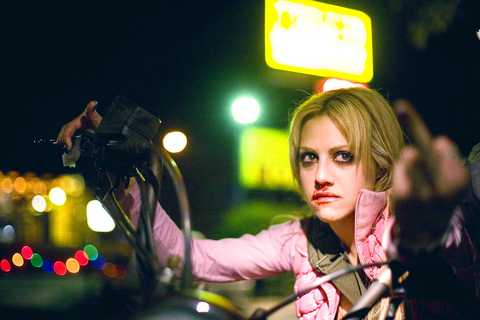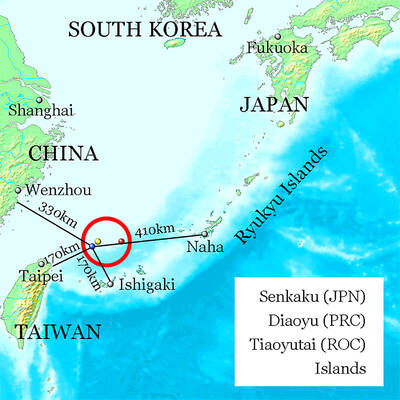The Dead Girl is a movie with a chip on its shoulder. The relentless emotional violence in it, a compendium of five vignettes related to a young woman whose naked, mutilated corpse is discovered on a barren hillside, is of a level rarely found in movies, even those steeped in gore. There is some gore in The Dead Girl, but it is eclipsed in intensity by the verbal abuse hurled by its desperately unhappy characters at the people closest to them. All five stories are set in the desolate outliers of Los Angeles, portrayed as a physical and emotional wasteland.
Just when it seems as though the language of insult and humiliation couldn't get any nastier, the movie escalates the barrage. I think we're meant to take it personally, as though the director and writer, Karen Moncrieff, were slapping our faces and screaming at us to wake up and face the awful truth; this is how many people (maybe most people) really are. Rage rules.
If the concentrated bile is bracing to a point, I don't totally buy it. Moncrieff, whose promising debut film, Blue Car, in 2002, explored the seduction of a high school student by her poetry teacher, simply doesn't know where to stop. The Dead Girl seizes on some of the same psychological forces and ratchets them downward on the economic ladder while turning up the volume.

PHOTO: COURTESY OF CMC
The grim tone is established immediately with The Stranger, the story of the body's discovery by Arden (Toni Collette), a meek young woman caring for her aged mother (Piper Laurie), a foul-mouthed, bedridden termagant who demands to be served hand and foot and rewards that service by calling Arden a two-bit slut and worse. The story follows Arden (who has kinky bondage fantasies) on a date with Rudy (Giovanni Ribisi), a creepy supermarket clerk who recognizes her from the media coverage of the body's discovery and whose fascination with serial killers hints that he might be the murderer.
In The Sister, the weakest of the five pieces, Rose Byrne is Leah, a clinically depressed graduate student in forensics who hopes that the body proves to be that of her missing sister Jenny, who disappeared many years earlier. If it is, she can finally get on with her life and pursue her romance with Derek (James Franco), a gentle, sympathetic co-worker. Mary Steenburgen plays Leah's mother, Beverly, who stubbornly insists that her long-lost daughter is still alive.
The angry tone returns with a vengeance in The Wife, in which Ruth (Mary Beth Hurt), a Bible-thumping harridan who lives in a trailer with her husband, Carl (Nick Searcy), harangues him mercilessly for his mysterious absences during which she is certain he is visiting prostitutes. Carl, who runs a storage facility, is so inured to her tirades that her fury seems to bounce off him. Rummaging through Carl's belongings while he is out, Ruth discovers evidence of a violent crime and must decide whether to report it or cover it up.
In The Mother, the most satisfying vignette, Melora (Marcia Gay Harden), the mother of the dead girl, who has been identified as Krista (Brittany Murphy), drives to the fleabag motel where her daughter shared a room with Rosetta (Kerry Washington), a drug addict and prostitute. Rosetta takes Melora, a typical middle-class mom, to meet Krista's 3-year-old daughter, Ashley. From Rosetta, Melora finally learns why Krista ran away from home and has her rose-colored vision of her idyllic family life shattered.
The concluding story, The Dead Girl, backtracks to the last day of Krista's life, in which she buys a toy for Ashley's birthday, and then — through a series of ugly mishaps involving her pimp and boyfriend (Josh Brolin) and a violent john who beats Rosetta — ends up hitching a fateful ride to visit her daughter in a neighboring town.
Murphy's Krista is a terror: a flailing, spitting and cursing live wire whose emotional anchor in life is a child she is too unstable to care for. In this histrionic performance by an actor who even in roles that call for sweetness and charm conveys hardness and defiance, Murphy and her disagreeable character mesh.

Seven hundred job applications. One interview. Marco Mascaro arrived in Taiwan last year with a PhD in engineering physics and years of experience at a European research center. He thought his Gold Card would guarantee him a foothold in Taiwan’s job market. “It’s marketed as if Taiwan really needs you,” the 33-year-old Italian says. “The reality is that companies here don’t really need us.” The Employment Gold Card was designed to fix Taiwan’s labor shortage by offering foreign professionals a combined resident visa and open work permit valid for three years. But for many, like Mascaro, the welcome mat ends at the door. A

Last week gave us the droll little comedy of People’s Republic of China’s (PRC) consul general in Osaka posting a threat on X in response to Japanese Prime Minister Sanae Takaichi saying to the Diet that a Chinese attack on Taiwan may be an “existential threat” to Japan. That would allow Japanese Self Defence Forces to respond militarily. The PRC representative then said that if a “filthy neck sticks itself in uninvited, we will cut it off without a moment’s hesitation. Are you prepared for that?” This was widely, and probably deliberately, construed as a threat to behead Takaichi, though it

Nov. 17 to Nov. 23 When Kanori Ino surveyed Taipei’s Indigenous settlements in 1896, he found a culture that was fading. Although there was still a “clear line of distinction” between the Ketagalan people and the neighboring Han settlers that had been arriving over the previous 200 years, the former had largely adopted the customs and language of the latter. “Fortunately, some elders still remember their past customs and language. But if we do not hurry and record them now, future researchers will have nothing left but to weep amid the ruins of Indigenous settlements,” he wrote in the Journal of

If China attacks, will Taiwanese be willing to fight? Analysts of certain types obsess over questions like this, especially military analysts and those with an ax to grind as to whether Taiwan is worth defending, or should be cut loose to appease Beijing. Fellow columnist Michael Turton in “Notes from Central Taiwan: Willing to fight for the homeland” (Nov. 6, page 12) provides a superb analysis of this topic, how it is used and manipulated to political ends and what the underlying data shows. The problem is that most analysis is centered around polling data, which as Turton observes, “many of these